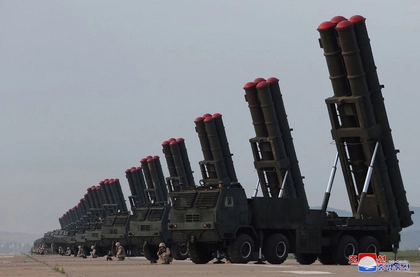The Russian military drone unit “Stalin’s Falcons,” named in tribute to the Soviet Union’s World War II Eastern front flyers, released a video on X / Twitter on July 28 that is purported to show the “Gerbera” unmanned aerial vehicles (UAV) or drones.
Examination of the video, which says the Gerbera drone was developed by Russia’s Gastello Design Bureau, shows it to be the same aircraft as the previously unknown type of drone that was shot down over Ukraine on July 24.
JOIN US ON TELEGRAM
Follow our coverage of the war on the @Kyivpost_official.
The military issues website Defense Express cites an expert who helped disassemble the downed drone and says it was of a relatively low build quality and made primarily of foamed plastic, probably selected for being lightweight and offering a low radar signature. It had a plywood interior compartment housing the navigation and control systems, batteries, and a 4G modem fitted with a Ukrainian mobile network’s SIM card.
The drone has a wingspan of about 2.5 meters (8.2 feet) and a fuselage length of just over 2 meters (6.5 feet). It is driven by a miniature petrol engine powering a rear mounted push propeller.
The Stalin’s Falcons unit is closely linked to the Alabuga special economic zone factory near the city of Yelabuga in Tatarstan, where Shahed/Geran kamikaze drones were assembled. If the Gerbera is being produced at the same industrial facility, it could indicate that Russian engineers have not been able to build Shaheds from scratch themselves.

Davos Power Hour: Zelensky’s High-Stakes Talks for Ukraine
Despite the video’s claim that the drone is the Shahed’s “little sister,” there is very little similarity between the two in terms of capability and tasks. The Shahed/Geran has one task: one-way kamikaze attack. According to the video, the Gerbera comes in three different variations: an explosive kamikaze drone, an electronic warfare signal intelligence (SIGINT) drone, and a decoy to attract and identify Ukrainian air defense radars.
The July 28 video includes footage from the kamikaze version which is of poor quality and suggests that the drones are guided by an operator just like the battlefield first person video (FPV) attack drones. The limitations of the system are perhaps also evident from the clip which shows a kamikaze version missing its target.
There are also several unanswered questions about the effective range of the UAV. The use of a 4G link could give it a stable high-speed connection using Ukraine’s own mobile networks. Shaheds have also previously been found using Ukrainian SIM cards. The fact that the downed drone reached Kyiv suggests it has a range of at least 300 kilometers without a warhead.
Military analysts suggest its most likely uses will include gathering intelligence and passing targeting information over a mobile network in real time; or presenting a false target to help identify Ukrainian radars and using up air defense assets to bring them down.
You can also highlight the text and press Ctrl + Enter










